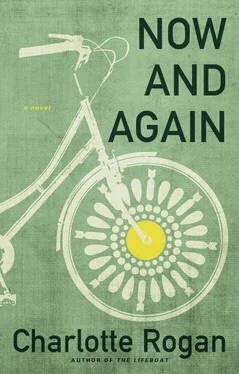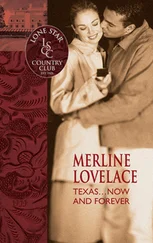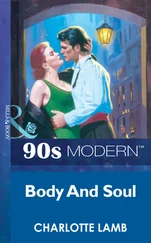4.8 Pig Eye
Kelly’s pills worked even better than Hernandez’s time-slowing trick. They brought everything into sharp focus so that Pig Eye had a chance to appreciate the shimmer of the pebbles under his hands and the rustle of dry grass and the scratch of the spiny seed heads against his skin as his mind squeezed off a round of calculations: thirty miles per hour, he decided, but gaining speed, which meant that in approximately two minutes the pickup would reach the Humvee that contained Tishman and Kelly and Finch. It was a bomb and it was going to blow the Humvee to kingdom come, killing the men it contained and lowering the odds for the rest of them.
“Never change the plan at the last minute unless you have to,” the marine had told him, but what if he had to? He had to neutralize the truck.
Once he understood the situation, his indecision and doubts vanished. Unless it was the pills that chased them, for suddenly he wasn’t worried anymore. Suddenly he felt like Superman, drenched in a downpour of rightness and karma and luck. Above him, the sun was a hot lid on the day. The earth embraced him from below as if he were not quite separate from it, as if he were poised somewhere between what he had been and what he would become. Then he pulled the pin on the grenade, holding the handle tightly in place and tensing his muscles for a run.
He couldn’t slow time down, but he could speed it up. He could speed it up by running toward the truck, which floated soundlessly toward him on its cloud of dust like a low-flying desert-colored bird. He couldn’t stop the bomb, but he could detonate it prematurely, before it reached the Humvee. And he could improve his accuracy by tossing from close range into the truck bed, where he figured the explosives were packed. In his imagination, the vehicle would sail by, continuing on for another three or four seconds while the fuse burned and while he kept running another three or four seconds past it, putting him outside the primary blast zone if he was lucky and exploding the truck before it reached his buddies. It was the best he could do, given the situation and the fact that he didn’t have any more time to come up with a better plan. Time and opportunity were the two most important elements in any escape kit — he had them, he just didn’t have enough.
4.9 Danny Joiner
Danny spent a moment trying to find his binoculars, which would have been useful in assessing the situation, but they weren’t around his neck and they hadn’t fallen to the floor. He slid out of the truck and took cover behind it before shouldering his rifle and firing frantically at the wall before settling down and aiming, which helped to pin down whoever was there even if he didn’t hit them.
The seconds ticked by. Whenever one of the Iraqis showed himself, Harraday would pop off a round, or Danny would, but then Harraday’s big gun went silent — jammed or out of ammo — so now Harraday was crouching in the gun turret and blasting away with his M4, which is when Danny noticed a vehicle that looked like a pickup truck approaching from the east. Danny figured the truck would have to leave the road at some point to get around the debris, but it didn’t leave the road. And it didn’t slow down. It was then that he noticed how the truck was riding very low to the ground and how it was heading straight toward Tishman and Kelly’s Humvee. “Incoming!” yelled Danny, but his head was pounding and he couldn’t even hear himself.
The best thing he could do was to stop the truck before it reached the Humvee and detonated, which was what was going to happen if he didn’t do something quickly. He rammed another round into the chamber and steadied his arm. He remembered to breathe. He remembered that his left eye was dominant. He remembered to flip the safety. Now that he had a plan, his hands were weirdly steady. His head was clear as glass. He could have been a sniper, he was so cool and controlled. As he squeezed the trigger, elation flooded through him because he knew even before the windshield shattered that it was a money shot and that his buddies in the Humvee were safe because of him. The driver pitched forward. The pickup swerved and abruptly stopped. And then the feeling changed into whatever was the opposite of elation as his laser focus opened out again and he saw that something had detached from the roadside and taken human form. The figure had time to run a few steps farther up the road before the truck exploded and with it, Pig Eye and everything predictable about the world.
4.10 Penn Sinclair
Penn Sinclair woke with a start to the enormity of what he had done. He lay sweating on his cot for over an hour before rising and dressing carefully in the dark. By the time the pink desert light filtered in at the plastic window, he had written a two-page statement outlining what had happened between the announcement that the tours were being extended and the encounter with the IED.
The men had been insubordinate. He had worried about losing control and overreacted. He had justified his actions by telling himself that the school was a priority, as was getting the supplies up the road for when the orders came through. But the truth was, he hadn’t asked enough questions or adequately assessed the intelligence or understood the implications of the surge for road-clearing crews or the general confusion that accompanied the implementation of any new strategy. He re-read the statement and thought again about how facts weren’t much different from fabrications. But it was the best he could do.
At 06:30 he knocked at the door of the colonel’s quarters. Falwell was blessed with a permanent interrogatory look that made people answer questions before he could ask them. When he opened the door, Penn wished him good morning and handed the two sheets of paper across. Falwell’s expression turned from Who’s bothering me so early? to What the fuck is this?
“It’s my statement, sir.”
Statement? asked the look.
“Confession, rather. To attach to the after action report.”
Falwell opened his mouth for the first time and said, “I was just about to have coffee. Why don’t you come in and join me, Captain.”
Penn didn’t want coffee. He didn’t want to sit down next to a picture of Falwell’s teenaged daughters or notice that in the picture, the daughters were lounging on a beach holding some kind of fruity drink while two dark-skinned people with trays hovered behind them and smiled for the camera. But he found himself sitting with a coffee cup balanced on his knees and blurting out the story of how he had sent the convoy before receiving the orders and how, once he had received them, he had allowed a unit to continue north to deliver a load of supplies to the school. “My actions were almost certainly the reason the convoy was attacked.”
“Almost certainly,” said Falwell.
“Certainly, sir.”
“How many things in life are almost certain, Captain? Death and taxes, crabs — that’s about it.”
“Likely, then.”
“I see,” said Falwell. “Was it yesterday? Or was it the day before? Or maybe it was Wednesday of last week or the week before that.”
“Yesterday,” said Penn, his eyes straying to the daughters, who wore oversized sunglasses and strapless dresses and the confident smiles of girls who knew how to get what they wanted. “It was the day after the troops found out they weren’t going home.”
“My point is that it could have been any day. It’s too dangerous to send supply convoys every day of the goddamned week. But, of course, it’s also too dangerous not to send them because that would hang the guys on the front lines out to fucking dry.”
The colonel swallowed a slug of coffee and said, “The line between disorder and order lies in logistics.”
Читать дальше












